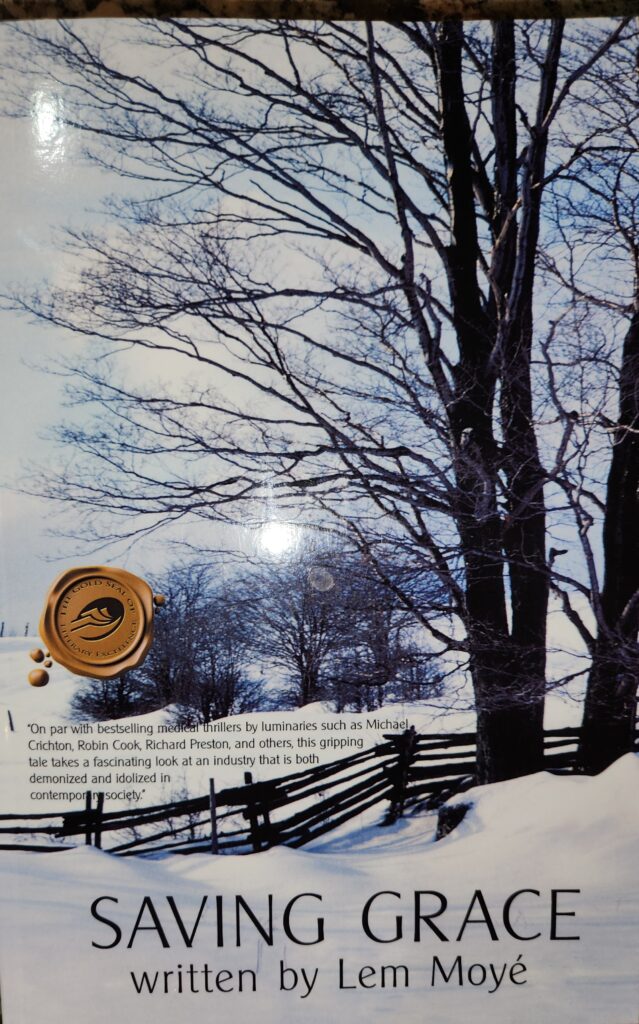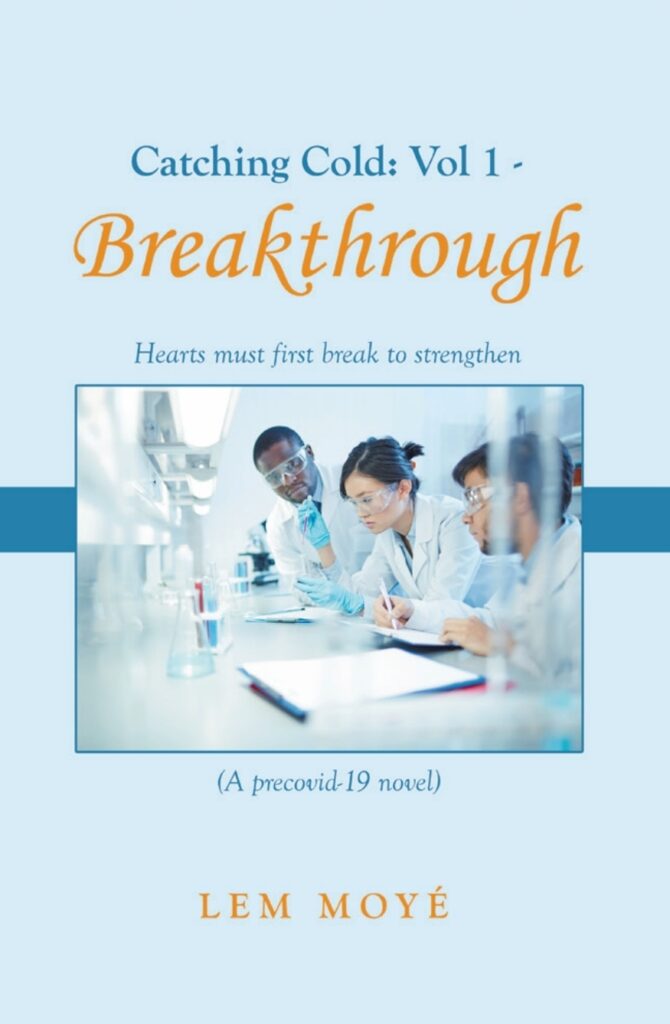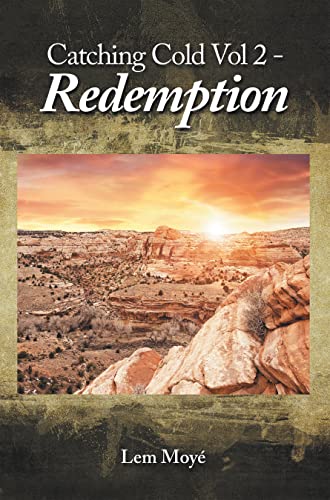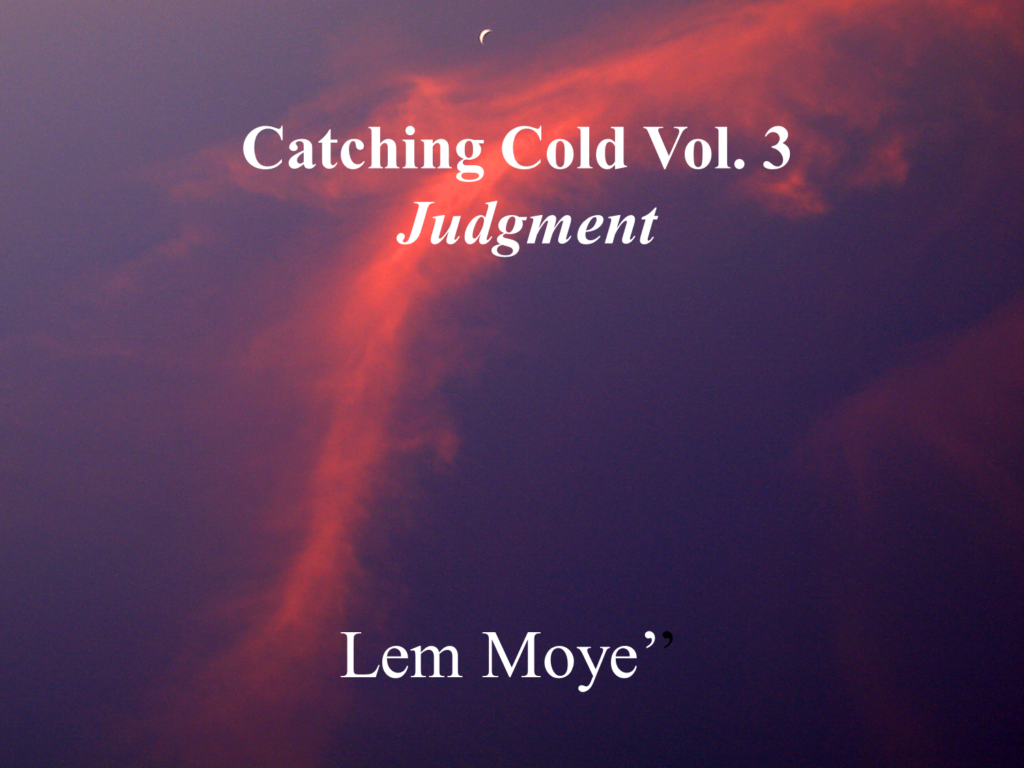
After working on my first novel, Saving Grace, for two years, I faxed its final draft in 2006 to my agent. She shopped it around, then recontacted me with nothing but negative findings. In response to my question “What was wrong?” she said that they only had to read the first page to see that I didn’t know how to write.
I was insulted.
I come from the field of science. There, we have papers to read. We call them manuscripts. They contain abstracts, introductions, methods, research, discussion and conclusions. Scientists in general first read the introduction then the methods section and then stop, asking themselves whether using these methods will satisfactorily answer these question raised in the introduction. If not, put the paper down and read another.
But nobody ever, ever drops the paper after reading a first section of the first page. Yet, I learned the demands on novel writers are different, principally because the audiences are not the same. Novel readers and science readers inhabit two related but different dimensions. In science we read. a paper because we are compelled to; it describes the latest advance in our field that we must know. The reader of fiction, however, can choose from among hundreds of novels. And so they have selection criteria which come down to whether they like the like the first chapter, or the first page, or even the first paragraph of a novel.
That is not always the best approach. I have read novels where the first chapter is excellent, but the novel quickly falls apart after that. I’ve also read novels where the first page was not so good, but the novel was incredible, making an indelible impression on me. Nevertheless, it is undeniable that readers commonly choose a novel based on how it starts.
I have to say, fifteen years later, I understand this concept, and have come to embrace wholeheartedly the need to have the first chapter be stellar. In fact, I’ve come around to the belief that the entire book needs to be as good as the first chapter. This takes a substantial amount of work, but if it improves our writing (the ultimate goal) it’s worth it.
So how exactly do we do this?

Tactics and Strategies
Our strategy is to write an unforgettable first chapter. For that there are procedures and processes that we can follow. Fine checklists and guideposts are available to include in the first chapter e.g., introduce the main character, set the tone, the time the place, the adversary and the conflict.
These are tactics. These are very useful tools. However, their use is not the ultimate goal. The goal is to give the reader a powerful and impactful first chapter experience.
The first chapter needs to reach out of the page and grab you by the lapels, telling you that the emotional experience you’re undergoing now is something you don’t want to end, and you just have to finish reading this book. One can follow all of the rules of the trade and not be able to write a first chapter, just like a pitcher can follow all the coaching advice and still not be able to throw a curve ball. Success comes from the excitement and persistence of dedicated practice.
My writing style now is to take a book through four drafts. The first draft reads from beginning to end, albeit roughly, and contains all of the chapters needed at the time. The second draft is primarily emotion injection and removing rough edges. The third and fourth drafts are more exercise in tightening and copy editing.
My point is that once I start draft two. I always begin an editing session reexamining and rewriting the first chapter, and end the writing session working on the last chapter. In this way, the first and last chapters have been continuously modified and changed as the book goes through its transformation to a final edition. In the end, I have to spend very little additional time on the first and last chapters.
Here are some examples of my draft one and final draft novel openings.

The first is the initial opening of chapter one of Saving Grace to which my agent objected.
The screech snatched the young scientist by the neck and shoulders, snapping her head up from the mesmerizing computer display with its neat columns of data. The doctor’s hands flew up from the comfortable keyboard as her heart slammed into high gear, pounding pain through her head with each powerful, rhythmic beat. As panic filled her chest, rapidly rising to her throat, she violently shook her head from left to right, as if she could dash the fear to pieces against the wall.
Whew Ok. It passes the “breathtaking” test. Somebody is experiencing something terrible but who? And why? Is she having a seizure? Being attacked? And where is this taking place. A lab? A hospital? Outer space? Seems wild and untethered.
This is the final version.
The 4:00 A.M. work session delighted Lindsey Cameron. Long legs wrapped tight around each other under the gray, metal desk, the tall scientist tap-tapped the rhythm of her organized life onto the spotless white keyboard in the virology lab. The days always started with the perfection of well-considered plans, she thought. Yet, she knew that this, like all of the others, would soon be poisoned by the unending flow of emergency emails, caustic phone calls, and tangled task lists. The dirty flotsam had to be adjusted and, to the tall, slim scientist with the reddest of hair, only the expanse of the predawn hours, the blessing-time, balanced the daily equation.
The lights blinked once, then when out.
We know who now, and that she likes to work quietly, alone, and without distraction. And with the last line, a new threat is coming.

Catching Cold Vol 1 – Breakthrough
Here is an example of the first paragraph of the first and last draft of my three volume set, Catching Cold series Vol 1 –Breakthrough
First Draft
Jon DeLeon knew he had them without knowing how, and the part of him that dozed throughout his organized life was awake, pulsing with energy.
Thi first draft was just a starter, a placeholder to kick the book off for me. But what does it describe. A scientist excited about giving a lecture maybe? Who is ‘them’?. And who cares. It has energy but no grip.
Now look at the final draft version.
Final draft
Scientists, on their isolating islands of intellect, blunder alone through the blinding fog of sex, affection, and acceptance.
On Monday, December 27, 2015, Dr. Jon DeLeon leapt into this haze for his Alora.
The final draft spells out the emotional conflict he is facing and will now be plunging into. In the first draft you wish him luck, in the final draft, you have to fight from holding your breath.

Cold Vol 2 – Redemption. Here are the opening lines for the first version of Volume 2.
First Version
“This can’t possibly be right.”
“Yes it is, Meredith. Your annual compensation is $27,544,077. Plus bonuses which increase it another forty percent.”
Meredith Doucette’s breath caught. The CEO of Triple-S Pharmaceuticals understood that she made lots of money. CEOs in her position raked it in all the time. That was part of the expectation of the community. American capitalism. She just hadn’t seen it put so starkly before.
We are introduced to a character, Meredith Doucette who is the CEO of a drug company, and is confused about her salary. Did she never know? did she have a stroke? Its curious, maybe interesting, but is it emotionally compelling? Now look at the final version
“Twenty-seven million dollars?”
New thoughts from a spirit, now vibrant and prowling, compelled Meredith Doucette to action, pulling her with hungry ferocity to some unknown destination. “This can’t be right,” she said.
Here, we see the source of the angst. She will be misbehaving in the corporate world. What will come of it?

First draft
11:02 A.M. EDT April 4, 2017
Dover, Delaware
Outside SSS Pharmaceutical Headquarters
Flat on her back, Meredith Doucette, SSS CEO, hoisted herself up from the cold, metal gurney to see her detached left hand, wedding band still on the dead finger, sitting on her chest.She vomited blood up and into the clean and serious face of the person leaning toward her.
Dark, and gross. Might even make the reader sick. Now, look at what is close to the final version.
11:02 A.M. EDT April 4, 2017
Dover, Delaware
SSS headquarters
32 minutes after detonation
Meredith Doucette lifted her head. A severed hand bearing a wedding band on its cold, pale, ring finger rested on her stomach.
This is darker without making the reader ill. It also suggests an explosion is the cause.

How do we practice?
I’ve come to the belief that the way to get skilled at writing a first chapter is to write every chapter like it’s the first chapter.
With the exception of my first novel, Saving Grace, my novels are inhabited by short chapters, some not over a page long. By the time I’m finished the fourth draft of the book, I want every chapter to at least start like a first chapter. A magnet pulling the iron bar of your intellect and emotions. Compelling, engaging, increasing the reader’s heartbeat, getting them involved in the story, leaving them at the end in a cliffhanger, which compels them to turn the page. Then what they read in the next chapter is as exciting as the first. That is what my goal is.
Tactics are good, but only as far they build a chapter that is a compelling, exciting and emotional one. That is the ultimate goal.
